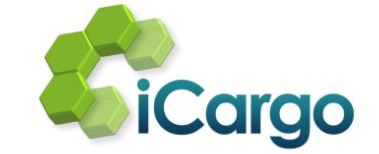
iCargo IP aims at advancing and extending the
use of ICT to support new logistics services that: (i) synchronize vehicle
movements and logistics operations across various modes and actors to lower CO2
emissions, (ii) adapt to changing conditions through dynamic planning methods involving intelligent cargo, vehicle and infrastructure systems and (iii)
combine services, resources and information from different stakeholders, taking
part in an open freight management ecosystem. To achieve the above targets,
iCargo will design and implement a decentralized ICT infrastructure that allows
real world objects, new planning services including CO2 calculation
capabilities and existing systems to co-exist and efficiently co-operate at an
affordable cost for logistics stakeholders. iCargo infrastructure will include
Intelligent Cargo items to facilitate automated reactive decision-making and to
integrate information obtained from on-going execution (all modes) into
planning processes to optimize environmental performances, including real-time
information about traffic and transport infrastructure conditions. iCargo
involves representatives of the main stakeholders in three main areas of
activity: (i) research and technological development, involving leading ICT
companies and institutes to integrate in iCargo the necessary technology
components, including results from key related EU projects, and to develop
innovative approaches and business models for co-modal transport environmental
optimization and dynamic planning; (ii) implementation, demonstration and
validation of three extensive pilots in end-to-end multi-actor intermodal
chains, involving users from logistics companies, shippers and public
authorities; (iii) extensive dissemination of research results, demonstration
and pilot cases validation activities, aimed at transferring iCargo results to
the international transport logistics community and supporting take-up and
extensive exploitation immediately after the project.

